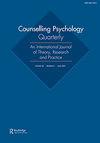在临床监督中吸收有问题的生活脚本主题:以Adam为例
IF 1.5
Q3 PSYCHOLOGY, APPLIED
引用次数: 0
摘要
在交易分析理论中,生活剧本主题是经验和互动的古老模式,可以在临床工作和影响实践中出现。本研究考察了新合格的治疗师在监督中是否可以发现有问题的生活剧本主题,如何处理这些主题,以及处理这些主题是否会导致这些主题的同化。在一位新近获得资格的男性治疗师(化名Adam)的指导下,连续进行了七次监督,并使用定性理论构建方法进行了记录和分析。问题经验同化序列(APES)被用来追踪亚当生活剧本主题的变化。生活剧本主题在所有七次监督会议中都很明显。它们围绕着两个相互关联的主题:虐待和拒绝。关于这些主题的讨论集中在过度识别、保护和自我披露上。主管的干预措施包括适合初级临床医生的教学工作和支持问题主题同化发展的促进工作。反思性监督包括对治疗师个人过程的探索,当它被触发时,可以促进实践的发展,并且是监督过程的重要组成部分,只要它尊重教学/治疗的界限。与之前的研究比较表明,相对缺乏经验的监督者与有经验的监督者在监督中出现的脚本主题不同。本文章由计算机程序翻译,如有差异,请以英文原文为准。
Assimilating problematic life script themes in clinical supervision: The case of Adam
ABSTRACT In transactional analysis theory, life script themes are archaic patterns of experience and interaction, which can emerge during clinical work and impact practice. This study examined whether a newly qualified therapist’s problematic life script themes were detectable in supervision, how they were addressed, and whether addressing them led to assimilation of these themes. Seven consecutive supervision sessions with a recently-qualified male therapist (pseudonym Adam) were transcribed and analyzed using a qualitative theory-building approach. The assimilation of problematic experiences sequence (APES) was used to track changes in Adam’s life script themes. Life script themes were evident in all seven supervision sessions. They centered on two interconnected themes of abuse and rejection. Discussions of these themes in supervision focused on over-identification, protectiveness, and self-disclosure. The supervisor’s interventions included didactic work appropriate for a beginning clinician and facilitative work in supporting development of assimilation of problematic themes. Reflective supervision including exploration of the therapist’s personal process when it is triggered can enhance practice development, and be an important part of the supervision process, providing it respect teach/treat boundary. Comparisons with previous research suggested that script themes emerged differently in supervision of relatively inexperienced supervisees as opposed to experienced ones.
求助全文
通过发布文献求助,成功后即可免费获取论文全文。
去求助
来源期刊

Counselling Psychology Quarterly
PSYCHOLOGY, APPLIED-
CiteScore
6.20
自引率
6.70%
发文量
30
期刊介绍:
Counselling Psychology Quarterly is an international interdisciplinary journal, reporting on practice, research and theory. The journal is particularly keen to encourage and publish papers which will be of immediate practical relevance to counselling, clinical, occupational, health and medical psychologists throughout the world. Original, independently refereed contributions will be included on practice, research and theory - and especially articles which integrate these three areas - from whatever methodological or theoretical standpoint. The journal will also include international peer review commentaries on major issues.
 求助内容:
求助内容: 应助结果提醒方式:
应助结果提醒方式:


